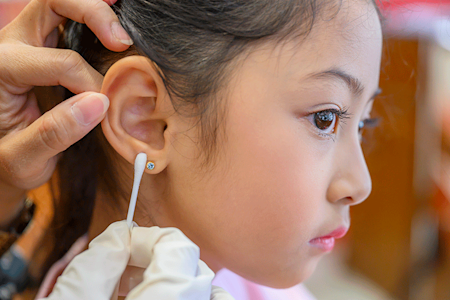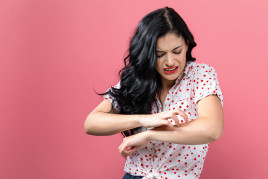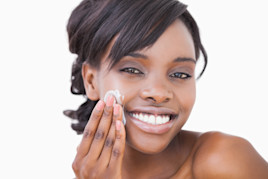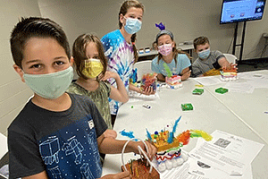Caring for new piercings
4 piercing tips from dermatologists
Follow these board-certified dermatologist tips to prevent problems in a new piercing, like infection or your piercing closing.
After getting a piercing, it’s important to care for it
The right care can prevent an infection, shrinking holes, and other problems.

A new piercing can be a fun addition to your personal style. Some piercings, like earlobe piercings, are more common and less risky than other body piercings. However, without the right care, you can experience complications after any new piercing, like an infection or your piercing closing.
The first step to caring for your piercing is choosing a qualified piercer. Choose an experienced piercer in a licensed studio.
Once you have your new piercing, keep it looking and feeling good by following these aftercare tips from board-certified dermatologists.
Leave your jewelry in your new piercing for six weeks or more, even at night. Removing your starter jewelry too early may cause the piercings to close.
Keep clean:
- Always wash your hands before touching newly pierced areas.
- Gently wash your piercings with a mild, fragrance-free cleanser and water at least once a day. This, too, helps to prevent an infection.
- Thoroughly rinse your piercings after washing them. You want to thoroughly rinse away the soap. Be sure to avoid getting water in places like your ear.
- Avoid cleaning your piercing with hydrogen peroxide or antibacterial soaps, which can damage your healing skin.
Using petroleum jelly that comes in a squeeze tube, gently apply a thin coat around each opening. You always want to use a squeeze tube because it will prevent you from transferring any germs that may be in an open jar to your piercings. The petroleum jelly will keep the piercings moist. A moist wound heals faster.
Keep an eye on your piercing. If the skin around your piercing gets sore, red, or puffy, or a hole oozes yellowish liquid, you may have an infection. If any of these don’t go away quickly, see a board-certified dermatologist. If the skin around your piercing becomes raised, you may be developing a type of scar called a keloid.
If you feel a keloid developing or have questions about caring for your piercings, partner with a board-certified dermatologist.
Images
Video created by the American Academy of Dermatology
Getty Images
Written by:
Brooke Schleehauf
Reviewed by:
Laurel Geraghty, MD, FAAD
Neelam Khan, MD, MS, FAAD
Ata Moshiri, MD, MPH, FAAD
Darrell S. Rigel, MD, FAAD
Sanna Ronkainen, MD, FAAD
Desmond Shipp, MD, FAAD
Last updated: 9/18/23
 Atopic dermatitis: More FDA-approved treatments
Atopic dermatitis: More FDA-approved treatments
 Biosimilars: 14 FAQs
Biosimilars: 14 FAQs
 How to trim your nails
How to trim your nails
 Relieve uncontrollably itchy skin
Relieve uncontrollably itchy skin
 Fade dark spots
Fade dark spots
 Untreatable razor bumps or acne?
Untreatable razor bumps or acne?
 Tattoo removal
Tattoo removal
 Scar treatment
Scar treatment
 Free materials to help raise skin cancer awareness
Free materials to help raise skin cancer awareness
 Dermatologist-approved lesson plans, activities you can use
Dermatologist-approved lesson plans, activities you can use
 Find a Dermatologist
Find a Dermatologist
 What is a dermatologist?
What is a dermatologist?